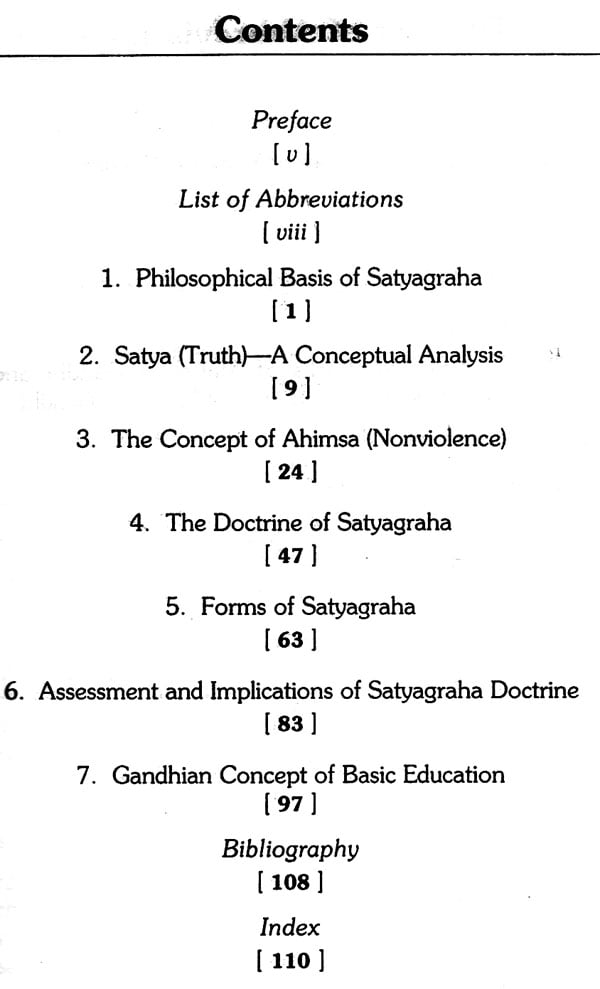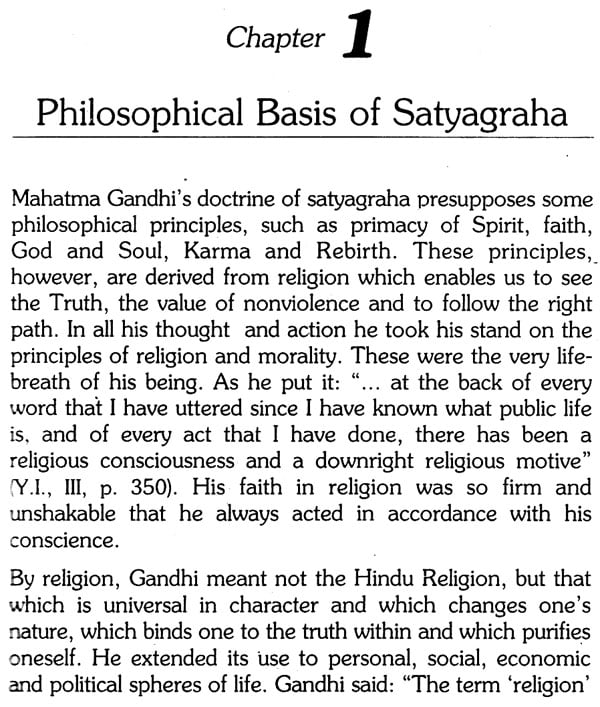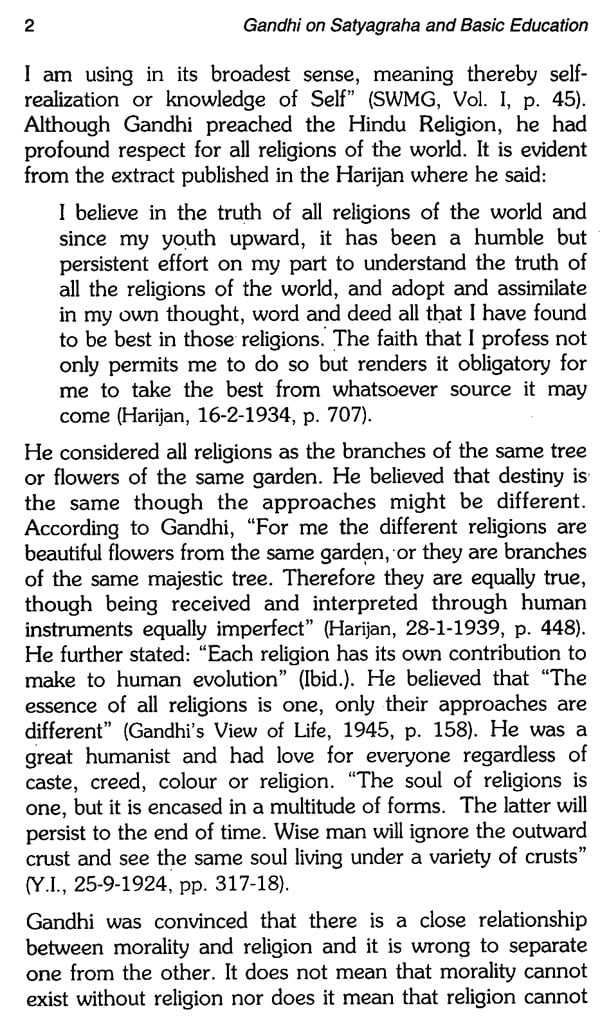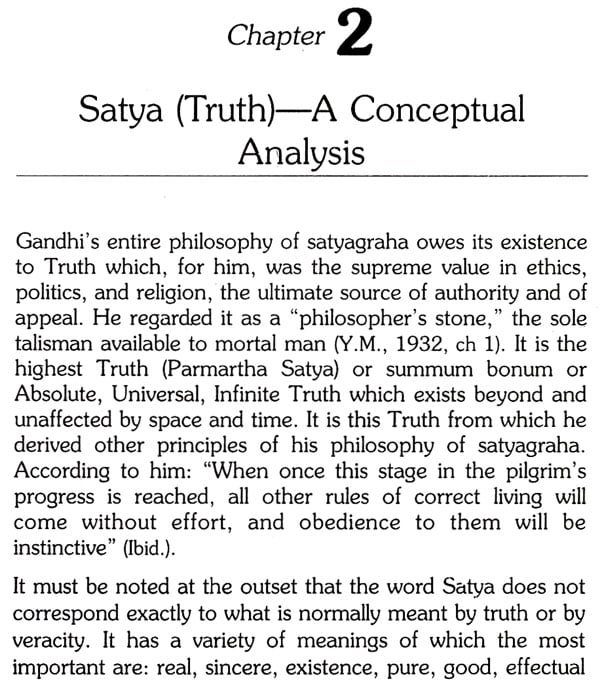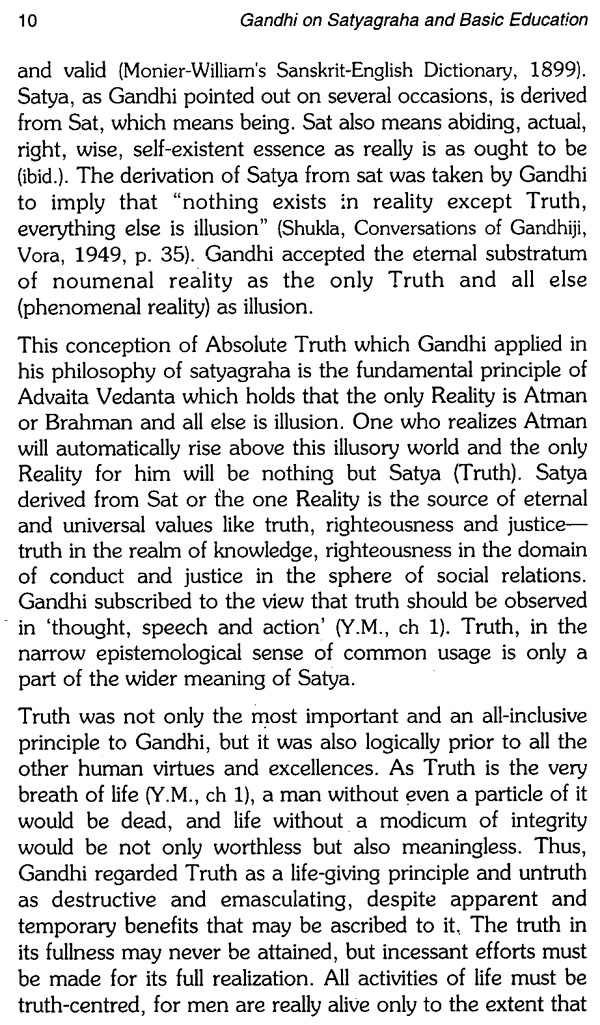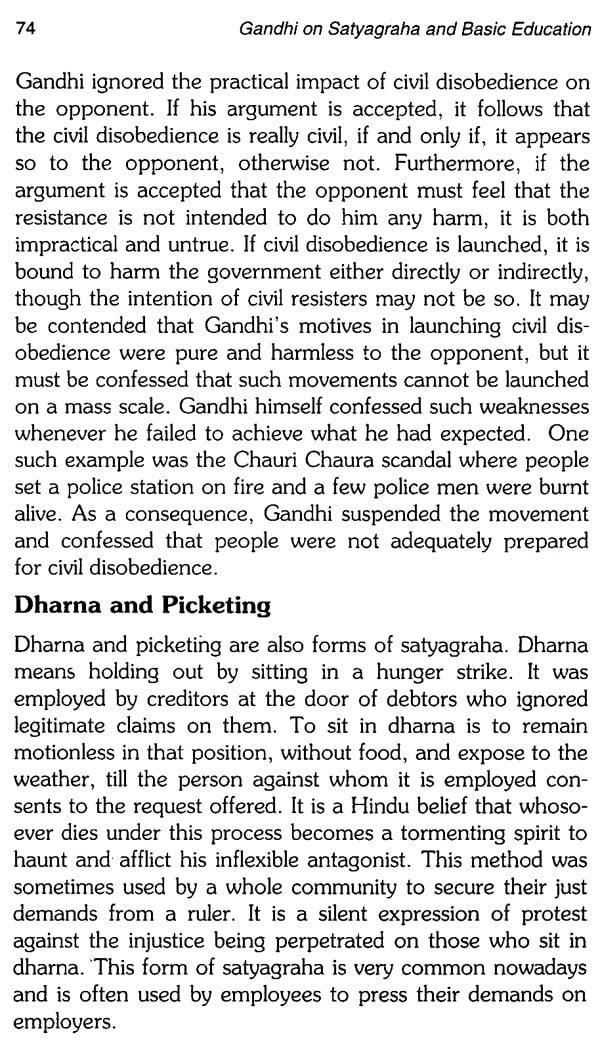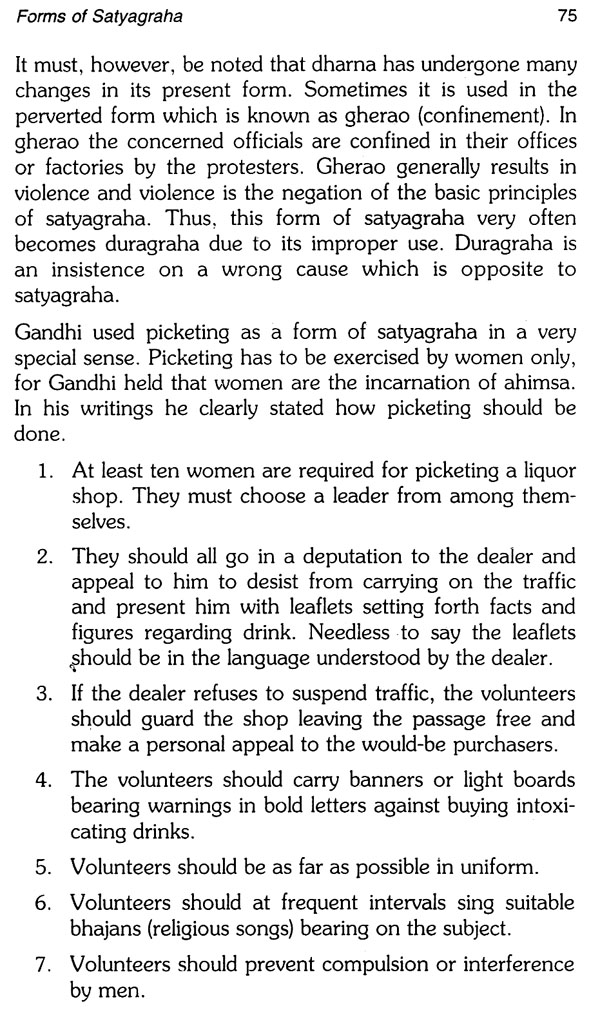
Mahatma Gandhi on Satyagraha and Basic Education
Book Specification
| Item Code: | NAU330 |
| Author: | R.B.L. Soni |
| Publisher: | National Publishing House |
| Language: | English |
| Edition: | 1999 |
| ISBN: | 8121406277 |
| Pages: | 118 |
| Cover: | HARDCOVER |
| Other Details | 9.00 X 5.50 inch |
| Weight | 240 gm |
Book Description
This book is an attempt to give a philosophical base to Mahatma Gandhi's conceptions of satyagraha and basic education. The satyagraha philosophy presupposes satyagrahi's faith in the immortality of soul, rebirth, and in the doctrine of Karma (action). Truth (satya) and nonviolence (ahimsa) are the fundamental principles of satyagraha movement. Gandhi's concept of basic education is an integrated whole, consisting of all aspects of education, such as spiritual, physical, intellectual and vocational. Religious education is an integral part of basic education. He believed that the purpose of education should be an all-round development of an individual. Efforts have been made to present arguments in a logical sequence and the book will be of great help to researchers, students of education, philosophy, political science, and other interested readers.
Mr. R. B. L. Soni started his career as a teacher in a school in New Delhi. He has been working as a lecturer in the Regional Institute of Education, Bhopal, a constituent part of NCERT, New Delhi, since 1986. He has been teaching graduate and post graduate classes and he has actively been involved in training teachers for special education. The author was honoured by being a recipient of national scholarship for his college education and he attended St. Stephen's College, Delhi for B.A. (Hons.) and M.A. Degree in Philosophy. He received an M. Phil. Degrees in Philosophy from the University of Delhi. Mr. Soni has a distinction of maintaining a brilliant academic record and he was awarded a scholarship for teacher training programme in the U.S.A. He also completed two certificate courses from the Hadley School for the Blind, U.S.A. Later on, he was sponsored by the NCERT, New Delhi for British Council Scholarship through the Government of India and Mr. Soni completed an M.Ed. Degree course from the Victoria University of Manchester, U.K. He has published several articles in learned Journals of education.
The main objective of this book is to elucidate the philosophical principles of Mahatma Gandhi and their application in the theory and techniques of satyagraha. He also applied his philosophical principles to his educational theory which is popularly known as 'basic education'. The growing importance of Gandhian studies is clear from the fact that people are much more inclined towards Gandhian thoughts today than ever before. Gandhi was deeply concerned about the prevailing violence and untruth in society and felt that it was a menace to the very existence of humanity. He propounded the doctrine of satyagraha as the only alternative to bring peace and harmony to society. His entire philosophy centred around the principles—Truth and Nonviolence and he tried to bridge the gap between his theory and practice of satyagraha by carrying it out in his own life. In spite of his honest efforts to live up to the doctrine of satyagraha, critics accused him of inconsistencies in his statements. Gandhi, however, clarified his position in 1939 by saying: "At the time of writing I never think of what I have said before. My aim is not to be consistent with my previous statements on a given question, but to be consistent with truth as it may present itself to me at a given moment." The author was deeply inspired by Gandhi's own writings, particularly his theory and practice of the satyagraha doctrine and his concept of basic education Gandhi sometimes used the phrase 'passive resistance' in the sense of bsatyagrand. In such places the word satyagraha has been put in brackets after the phrase passive resistance to clarify the exact meaning of the word that he wanted to convey. The book contains seven chapters in all, out of which first four chapters deal with the theory of satyagraha and the fifth with its techniques. Chapter six points out limits and abuses of the satyagraha doctrine and its applicability in modern times. Chapter seven deals with Gandhi's concept of basic education.
**Contents and Sample Pages**
